Industrial vacuum pumps are rotating mechanical machines, and as such they can be noisy when they are running. However, if you notice that the pump noise has increased more than normal, it is most likely due to contamination in the pump, or a damaged component.
Here are the most common causes of unusual noises in vacuum pumps:
- Vibration Noise: If the pump is not properly secured or balanced, it can vibrate excessively, causing noise. Check that the pump is securely mounted and that any mounting hardware is tightened properly.
- Cavitation: Cavitation occurs when vapour bubbles form and collapse in the pump due to low-pressure conditions. This can result in a distinct knocking or popping noise. To prevent cavitation, you may need to adjust the pump speed, reduce the inlet pressure, or change the pump’s design.
- Mechanical Wear: Over time, the moving parts of a vacuum pump, such as bearings, vanes, or gears, wear down. This can lead to grinding, squealing, or rattling noises. Regular maintenance, including lubrication and part replacement, can help address this issue.
- Foreign Objects: Foreign objects or debris can get sucked into the pump and cause noise as they interfere with the moving parts. It’s essential to keep the area around the pump clean and use appropriate filters to prevent foreign material from entering.
- Air Leaks: Leaks in the vacuum system, such as in the pump seals, hoses, or connectors, can lead to noise. The hissing or whistling sounds are often an indication of air leaks. Identifying and sealing any leaks will resolve this issue.
- Liquid Ingestion: If the vacuum pump comes into contact with liquids, it can cause noise, damage, or malfunction. Some vacuum pumps are designed to handle liquids, while others are not. Ensure that the pump is compatible with the process fluids and take precautions to prevent liquid from entering the pump.
- Bearing or Motor Problems: Faulty bearings or motor issues can lead to abnormal noises in the vacuum pump. Bearings may become worn or damaged, causing grinding or whining sounds. Motor problems can manifest as humming, buzzing, or erratic noises.
- Overheating: Excessive heat can lead to thermal expansion, which can cause components to rub or bind, resulting in noise. Proper cooling and ventilation are crucial to prevent overheating.
- Pump Contamination: Contaminants in the pumped gas or process can lead to deposits or damage within the pump, causing noise. Ensure that the gas or process media is clean and compatible with the pump.
- Incorrect Installation or Setup: Improper installation, incorrect setup parameters, or running the pump outside its specified operating conditions can all contribute to noise issues. Consult the manufacturer’s guidelines and specifications for proper installation and operation.
How to fix your vacuum pump
If you are confident in attempting to identify the cause of the excess noise, there are a few things you can try. Check the motor, the fan, bearings, the oil, and that it has been installed correctly
If your vacuum pump is making unusual noises, it’s essential to address the issue promptly to prevent further damage and maintain efficient operation. Consult the pump’s user manual or contact us for specific troubleshooting guidance and repair recommendations.
Phone: 01302 439133
Mobile: 07498 644840
Email: enquiries@ivacps.co.uk
